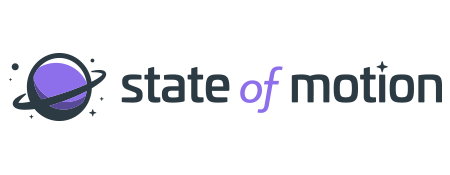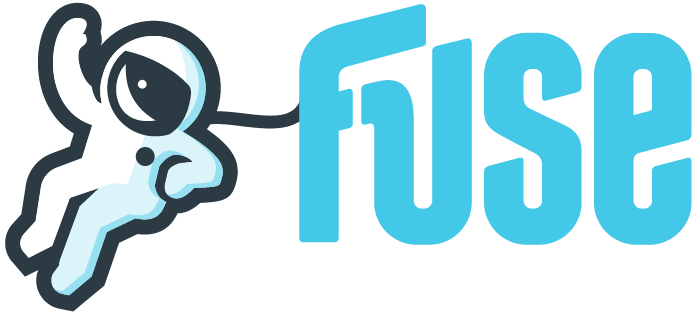What The Age of ChatGPT Means for Small Business
Article By Erik Ralston Co-Founder & CTO at Soundbite.AI | Co-Founder & Educator at FuseSPC.Com Accelerator
A Primer from Fuse Accelerator to Solopreneurs and Independent Business Owners
This article is re-published from the Fuse Accelerator, where I’ve been a co-founder and a leader in the education program for almost a decade. If you’re in Tri-Cities, WA and want a place to work with people who are definitely not deep fakes- please come check us out!
As the AI excitement since the start of 2023 has settled down to a simmer, members inside Fuse have been sharing practical ways to use AI to improve their businesses with each other. This article outlines the basic perspective on how small businesses should think about adopting recent AI innovations into their businesses — at least how one co-founder of Fuse sees it across local communities. Overall, it should be a zero-hype outlook that encourages you to at least start diving in before the competition.
When Should I Use AI Tools?
Since January the internet has been flooded with noise about AI, especially a range of “Get on AI Now” or even “Get Rich Quick” schemes. We are now right at the intersection of the competing notions that business owners need to adopt AI for efficiency, but audiences are now being permanently paranoid that content on the internet is “just a bot” and that white-collar work might be under threat.
According to Forbes, 75% of consumers are “concerned about misinformation from AI”. This is anywhere from your audience on social media being ready to react negatively to content that “sounds like AI” to users of AI being concerned about getting wrong answers when they ask questions. Fair speculation on the knock-on effects of these reactions is that “content marketing” is likely dead, at least anything that is plain text and overly professional.
Furthermore, Search Engine Optimization (SEO) will radically shift given that AI-powered assistants will soon summarize internet content to their users instead of returning links to your website. What is SEO in the era of Bing Chat? Hard to say, but there will be a competition of some kind for staying top-of-silicon-mind with these providers and existing SEO practices around things like seeding third-party content that has some social proof aspect (EG, having your restaurant on Yelp and your business on Google Maps, anything with a quality indicator and some structure to it) will likely remain relevant while personal website content — especially the use of even blogs like this — might be thrown into question.
When should you start? Well, if you were running your business in the year 1998 and you didn’t even know what Yahoo was, how long would you have waited to start searching with Google? If it was 2007 and you didn’t even have a Blackberry, how long would you have waited to get a smartphone for them? It’s 2023 and you’ve never had AI assistants and tools in your business before, how long until you give to make it a weekly habit to try?
What Kinds of Tools Should I Use?
While everyone is talking about ChatGPT — and it is a great starting point for anything text-related — one has to view that as only an entry point. Offering a small amount of direction for an AI to give you a lot of distance — hopefully matching your destination — is going to be a feature in almost every tool moving forward.
For instance, you should be introducing your team to ChatGPT now simply because Microsoft is about to release features like it into all of their Microsoft Office apps soon anyway using M365 Copilot and it’s likely a necessary training step to get the most out of digital tools your team already has. Small businesses that haven’t put effort into digital transformation in the last 10 years will continue to feel further competitive pressure — especially from digital-only businesses — as they start to commoditize expertise alone.
Big bets of AI beyond simple knowledge work productivity boils down to finding a specialized AI tool for your industry. As a software engineer, I’ve been pair programming with Github Copilot for a long time to have my productivity augmented by AI, but most industries are not going to see such returns for years. While this writer would highly recommend having your knowledge workers recruit some silicon reinforcements, the AI hype is likely overblown for more practical purposes.
For instance, agriculture in the Columbia Valley will one day reap huge returns from AI advances in computer vision and robots; however, ChatGPT and friends do not meaningfully change front-line work in these industries. The Fuse ecosystem has seen companies trying to make digital disrupton in agriculture, such as Innov8.ag that specializes in crop data collection. This would lay the foundation for having the data for receiving advice on your farm from a bot one day, so one should not literally bet the farm on ChatGPT.
Who Should Use AI Tools?
The same data from Forbes indicate 77% of people are “concerned that AI will cause job loss in the next year”, which ranges from you as a business owner being concerned it might commoditize your expertise to your employers looking over their should and wondering if you will replace them with ChatGPT. The fact is that the current wave of AI is unlikely to replace customer contact, rather it will likely enable automating discrete tasks that accelerate your experts rather than replacing them.
When you have an existing source of information, its handling requires a lot of time and/or focus, and the user of the information could easily recognize issues faster than the AI tool can make mistakes — that is an ideal use case. These factors vary by vocation. Oddly enough, the software engineers creating the AI tools are disrupting their own industry the most, but other more practical examples for small businesses apply.
For instance, we’ve spoken with a local real estate agent who is saving themselves time and stress using ChatGPT to transform the raw stats of housing databases into paragraphs for descriptions and marketing. They provide the human expertise in creating catchy and unbiased content while not spending limited cognitive capacity on brainstorming and wordsmithing. They can also sit down and build up complete descriptions and social media posts for more properties in one whirlwind effort with an AI co-writer.
What’s The Long-Term?
No one can predict the future, least of all internet commentators. But it’s obvious there will be actions and reactions between both business owners and customers that will permanently change the landscape. Most of all, the efforts of online marketers in the long term will rebalance the effectiveness of content marketing, influencer marketing, and SEO — the three big innovations of reaching people online.
There are also businesses responding to the SEO and content marketing arms race with a concerted AI-fueled push right now. For example, ChatGPT is currently only trained on data since 2021. Thus, if you had a content and SEO marketing strategy running at the time, you have an outsized edge on the competition as tools like Bing Chat and Google Bard start hitting the market.
However, this advancement in time means you need to work to catch up now. You have a small window of time where AI content generation will be available, but not yet completely diluted in authority. Thus to stay in the game, you likely need to use AI-powered content marketing through the end of 2023, but after that, we may all be shouting into the AI-powered wind. The amount of noise on the internet with regard to content marketing is already increasing, so having a long-term strategy around building awareness online in this new era may be impossible.
Conclusion
As AI grows across the internet the most likely outcome is that it will become an even more decreasingly authentic place. Maintaining customer relationships through online interactions between authentic people will continue to be invaluable, but building them up in the first place is going to become more fraught.
There is a definitive incentive to unleash AI on the problems of unleashing your team from drudgery. Helping them scale their work through digital channels — especially anything text-based — is obvious. However, replacing the customer experience with technology could be disastrous to the “mom-and-pop shop” because their long-term differentiator is direct relationships and being face-to-face in a single place compared to the anonymous, silicon competition.
Erik Ralston is an innovator with 17 years of experience, plus a BS in Computer Science from Washington State University. He is currently the Co-Founder and CTO of Soundbite.AI, an enterprise communication platform. Erik is also co-founder of Fuse Accelerator in Tri-Cities, WA where he works on connecting people and sharing knowledge to turn new ideas into growing startups. You can find him on LinkedIn or at the next Fuse event.




